There is no end to worries when it comes to caring for a newborn baby. No matter how much research you do on the subject, there will always be new worry reason that pops up.
Pediatricians give new moms helpful tips and guidelines for them to follow in order to make sure that their infant develops properly and stays healthy and strong.
For example, WebMD writes that pediatricians highly recommend following traditional vaccination schedules, and that means little ones can receive at least 27 vaccinations by the time they turn two years old.
Of course, thanks to the Internet and peer pressure, some mothers might feel tempted to try alternative methods with their infant, although they will heartily deny it if asked by their pediatrician.
A good example is some mothers being intrigued by the idea of co-sleeping, despite the fact that S. Mommy points out that pediatricians say it’s not a good idea because it is gambling with an infant’s health and it is far safer to let a newborn get some shut-eye on a firm, flat surface inside of a crib or a bassinet.
Read on to learn what other fibs some mothers will tell their pediatricians at their child’s next well check-up.
20. THEY HAVEN’T BEEN RESEARCHING ALTERNATIVE VACCINE SCHEDULES

The Bump points out that one fib new moms might feed to their child’s pediatrician is that they haven’t been reading articles or talking to other new moms and have been pondering if they should go with an alternative vaccination schedule.
For moms that are on the fence, WebMD writes that even though it seems like an infant is getting a lot of vaccines, the schedule put forth by the CDC has been thoroughly studied time and time again and has been proven to be both safe for a little one and effective. The reason why kiddos get so many vaccines in the first year of life is due to the fact their immune system isn’t all that strong and the vaccinations help them stay nice and healthy.
19. FOLLOWING BATHING GUIDELINES TO A T
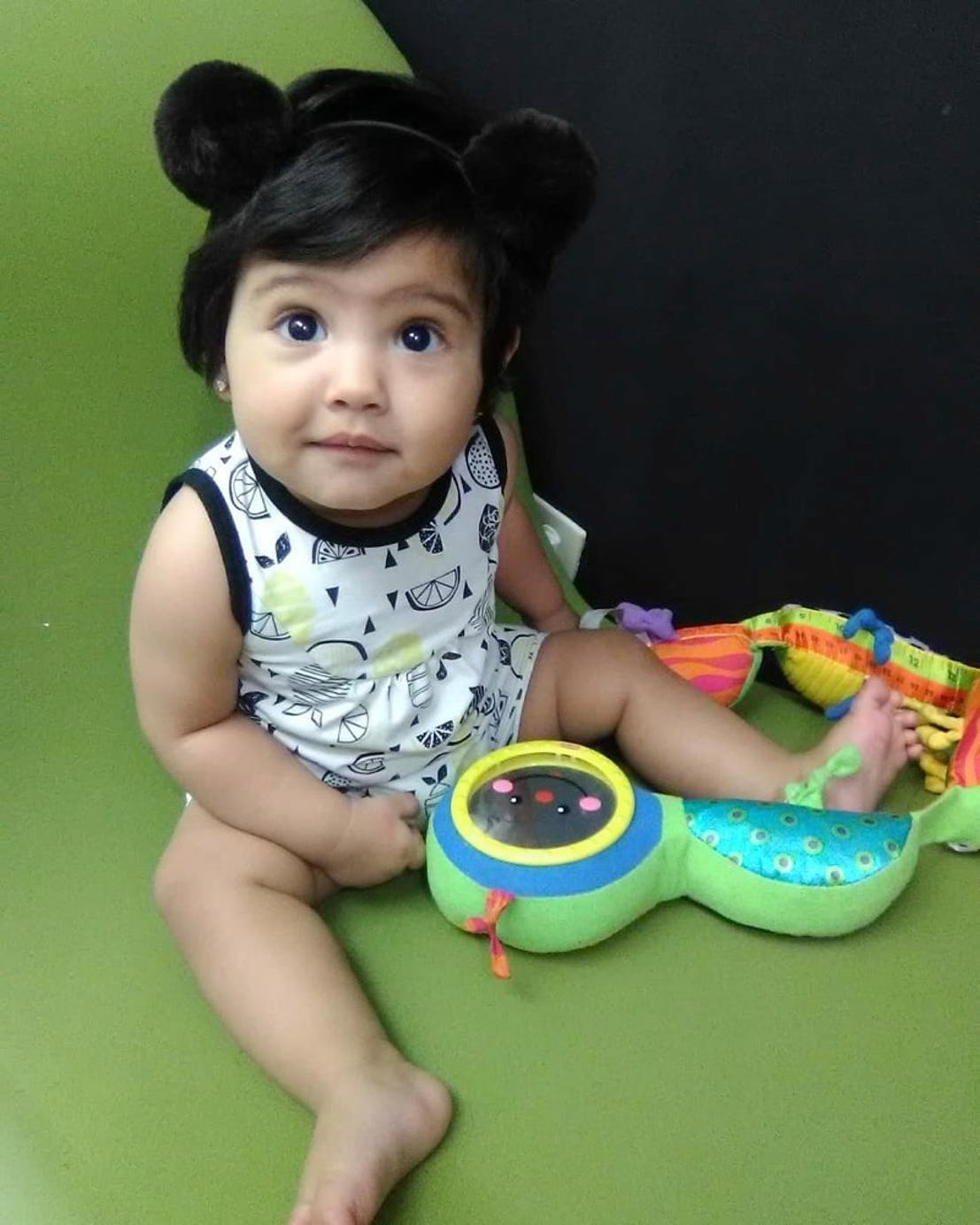
Motherly points out that most, if not all, pediatricians will advise new moms to not bathe their little one until after their belly button is all healed up and dry. After all, it’s not as if the infant is doing anything that would require a bath—they can’t exactly go outside and frolic in the mud or play at the local playground in the park.
Still, some moms might feel a bit worried that their little one is getting too grimy, especially if they are fastidious about germs and give their baby a bath, even though they know that their child’s doctor wouldn’t be pleased if they ever found out.
18. YOUR FEEDING SCHEDULE IS GOING GREAT
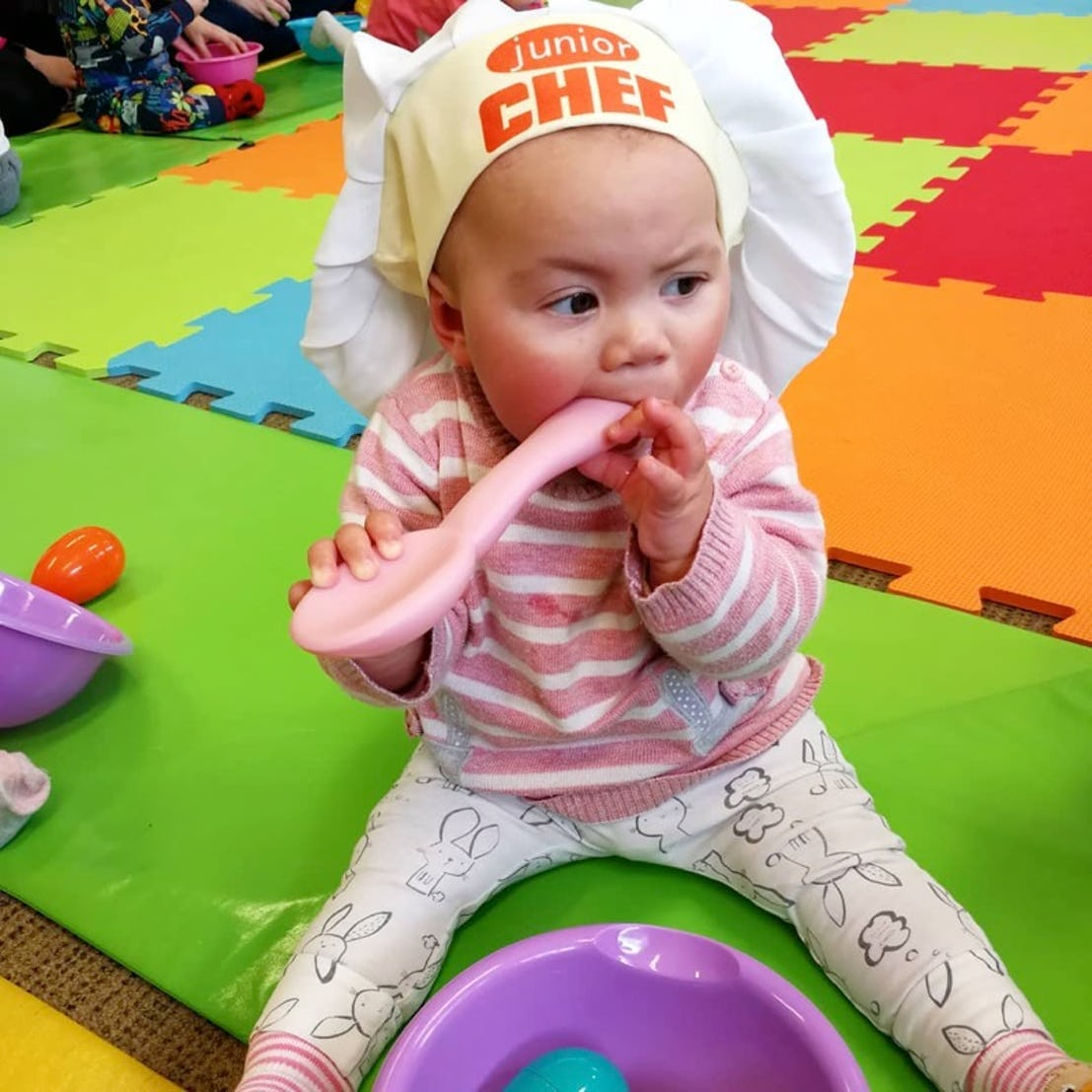
Let’s face it, while babies, puppies and kittens all require the same level of intensive care in the first few months that they come home, the baby animals have nothing on tiny humans when it comes to how many times per day they need to eat. In general, most puppies and kittens need to eat three square meals a day and then the owners can move it to two meals per day when they have passed the year mark.
Motherly writes that newborns need to eat every two or three hours until your pediatrician says it’s okay to switch up the schedule and that can be a bit hectic for moms, especially if this is their first child. Some moms may not mention that they are feeling a bit frazzled to the pediatrician because they feel ashamed of how they’re stressed out.
17. THERE ARE NO PROBLEMS WITH BREASTFEEDING BABY
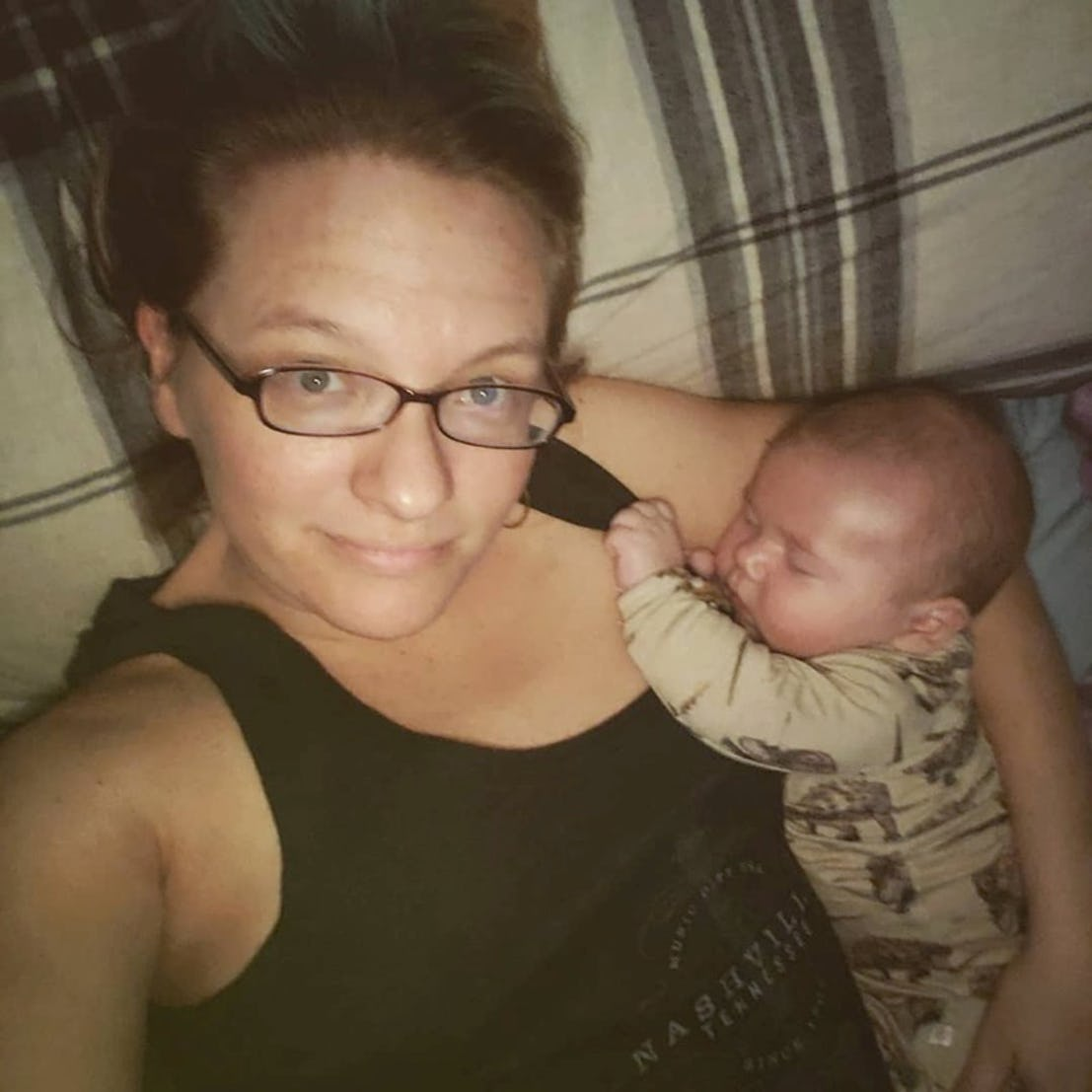
Society often erroneously believes that when a new mom makes the decision to breastfeed her infant, the entire process should be effortless and both mother and baby should get the hang of it pretty quickly because it’s natural.
The Bump points out that this misguided belief isn’t always true because much like learning how to ride a bike or sing, learning how to breastfeed is a process for both mom and newborn; sometimes, one or both parties will hit speed bumps. Instead of telling a white lie that all is well with breastfeeding and toughing it out on your own, it’s better to talk to your doctor about any issues and see if they can help you find a good lactation consultant.
16. YOU’RE WAITING TO INTRODUCE THE PACIFIER
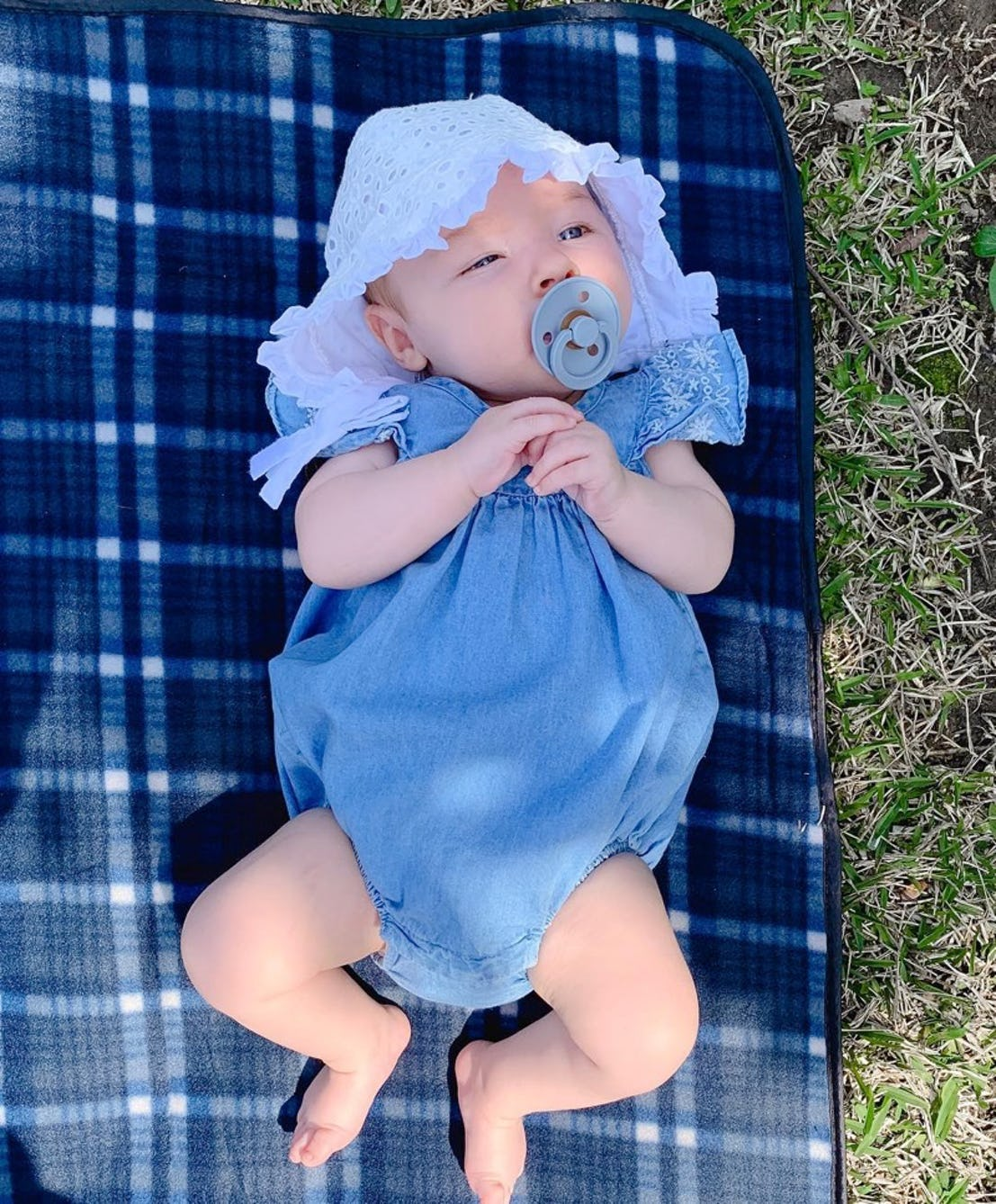
Pacifiers can be a total lifesaver for stressed-out mommas that are in dire need of a bit of peace and quiet when they have been dealing with a fussy newborn, and might slip their child one before the customary two- to four-week age block.
Motherly points out that most pediatricians recommend that moms wait until their infant is somewhere in the age range of two to four weeks old before offering them a pacifier because it can make learning to feed (especially if you decided to breastfeed) a bit easier for the little one. If you give them a pacifier ASAP, then there’s a chance that your baby might have a slower time of learning how to breastfeed properly.
15. YOU MAKE SURE TO WASH YOUR HANDS VIGOROUSLY BEFORE HOLDING BABY

Let’s face it, many moms won’t admit to their doctors that they have only given their hands a cursory washing with soap and water instead of vigorously making sure that they have swept away all of the germs each and every time they have gone to hold their newborn.
Motherly points out that doctors say ideally both parents and guests should make sure that they thoroughly wash their hands before they hold or feed a newborn due to the fact that infants don’t have a strong immune system yet and it is pretty easy for them to catch germs.
14. NO RELATIVES THAT AREN’T FEELING WELL HAVE VISITED BABY RECENTLY

Delivering a child is an exciting time for both parents as well as their family and friends because pretty much everyone wants to come over once mom is feeling a bit more rested so they can meet the new arrival and snuggle with a cute little baby.
Motherly adds that some new moms won’t admit to their doctor that they haven’t been as strict as they should be in terms of barring a friend or relative that isn’t quite feeling well from coming over and seeing the baby because they know that they’ll get an earful about how infants need to be protected from germs and don’t need to be around anyone that can spread them.
13. YOU’RE NOT KIND OF OVER CHANGING DIRTY DIAPERS EVERY FEW HOURS

Motherly writes that no matter how many parenting books a mother reads in order to prepare herself for life with a newborn, it can be a bit mind-boggling how often an infant needs his or her diaper changed and it can take a while for moms to get used to constantly running to the changing table, since babies can go to the bathroom eight times a day or more.
Not that some moms will admit to the doctor that they were totally thrown for a loop about how often they have to keep exchanging their child’s used diaper for a clean one every day.
12. STAYING UP TO DATE WITH THE FLU VACCINE

Some mothers might be a bit too sheepish to admit that they slacked off on getting certain vaccinations on time after their little one was born because they know that their child’s doctor would not be thrilled to hear that they let such an opportunity slip through their fingers.
According to Motherly, doctors recommend that all parents and other chosen caregivers (like a baby sitter) should get vaccinated against the flu and whooping cough since an infant is still way too young to get their own set of immunizations. After all, it is better to be safe than sorry in order to keep your little one feeling healthy and happy!
11. YOU ARE COMMITTED TO LETTING YOUR BABY’S BELLY BUTTON HEAL ON ITS OWN

Motherly writes that pediatricians tell new moms that they need to leave their infant’s belly button alone so that it can heal on its own and under no circumstances should they try to speed up the healing process.
Some moms don’t listen to their doctor’s advice and keep mum about how they used water or another cleansing agent to try and get the belly button to heal a little bit faster or how they gave their little one a bath before their belly button has had a chance to fully recover from the removal of the umbilical cord at delivery.
10. YOU DON’T FEEL AWKWARD BECAUSE YOU HAVE TO FEED BABY FORMULA
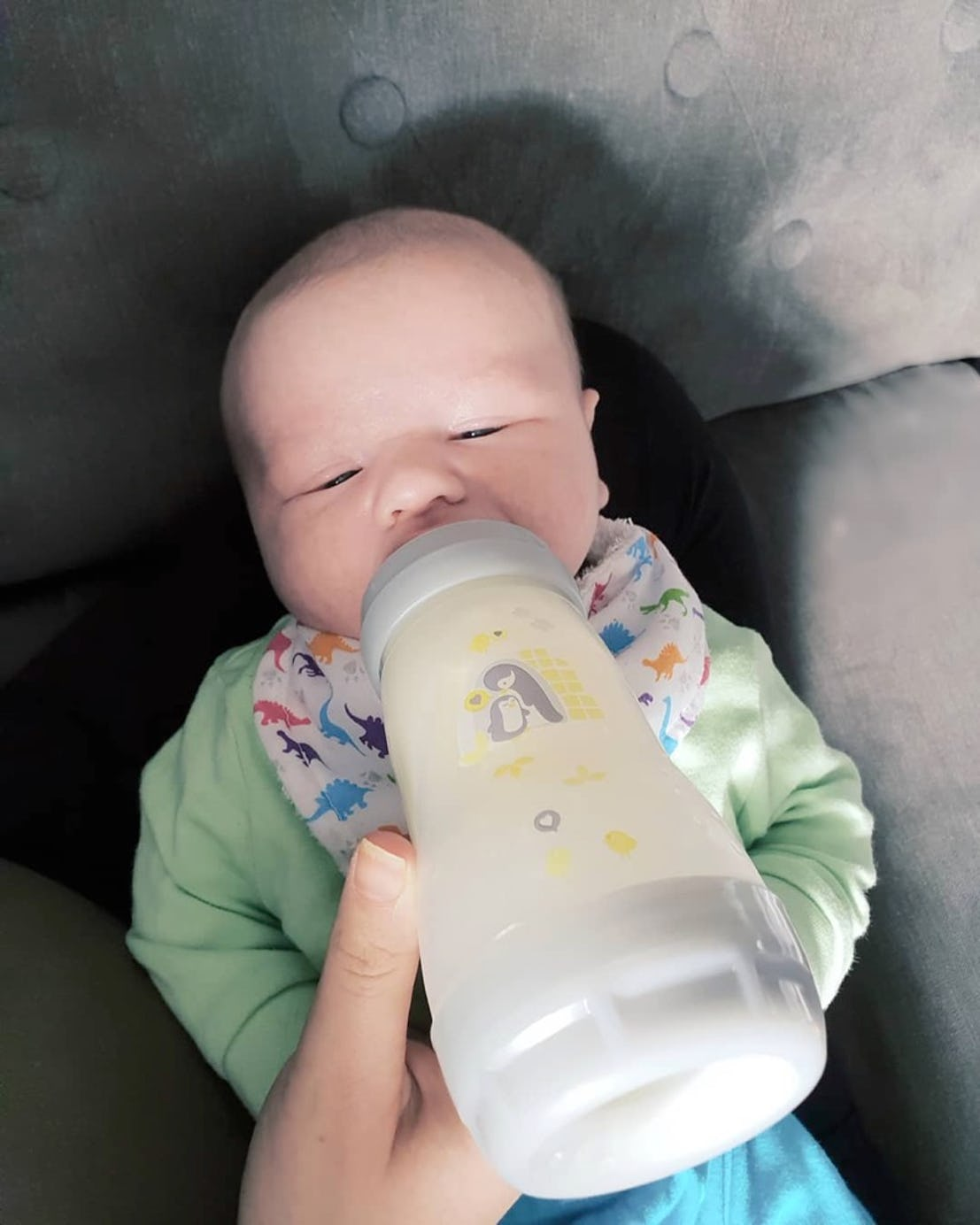
Unlike the stereotypical picture perfect mental image many people in society have about how effortless it is for mom and baby to get the hang of breastfeeding, the truth of the matter is that sometimes, things happen and interfere with the process. And in other cases, moms prefer to formula feed their infant for reasons of their own.
Romper notes that there’s definitely still a stigma surrounding mothers that formula feed in public and some new moms might not admit to their doctor that they feel too shy to admit to friends and family that they had issues breastfeeding or have their own reasons for picking formula over the “all-natural” method.
9. YOU AREN’T CONSIDERING USING NATURAL REMEDIES TO STOP ANY BREASTFEEDING ISSUES
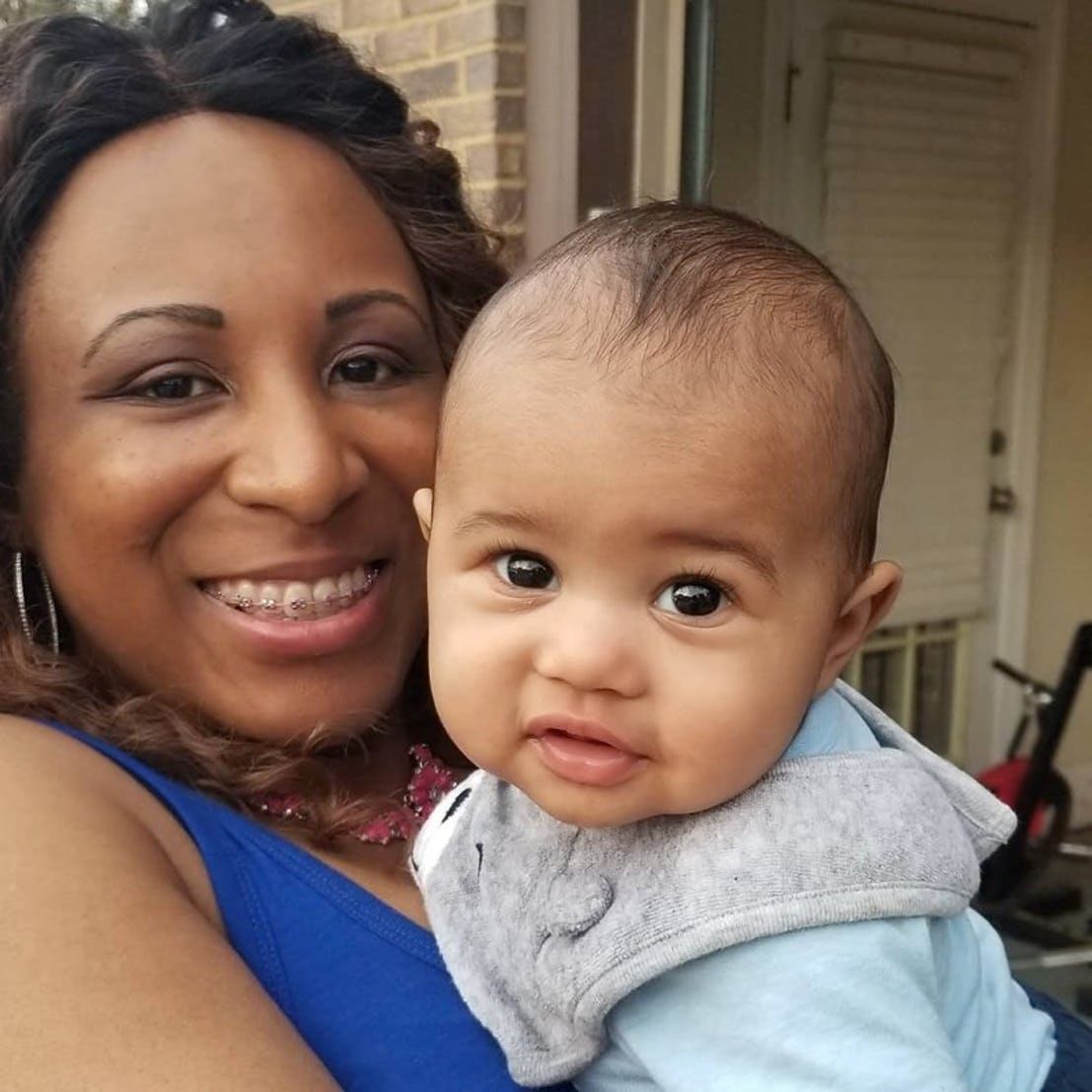
When it comes to breastfeeding, it can be very frustrating for mothers to see that their little one just isn’t getting the hang of the entire process and Romperpoints out that sometimes, they furtively turn to remedies such as a craniosacral massage or going to see a chiropractor in the hopes that it will remedy the issues they have been having.
Instead of fibbing through your teeth about not having any issues breastfeeding and if you tried alternative remedies to help, it’s best to have a frank discussion with your pediatrician. They may be able to help you, and they’ll definitely be able to point you in the right direction in terms of finding a good lactation consultant.
8. BICYCLING YOUR BABY’S LEGS IF THEY ARE FEELING UNCOMFORTABLE IS YOUR GO-TO MOVE
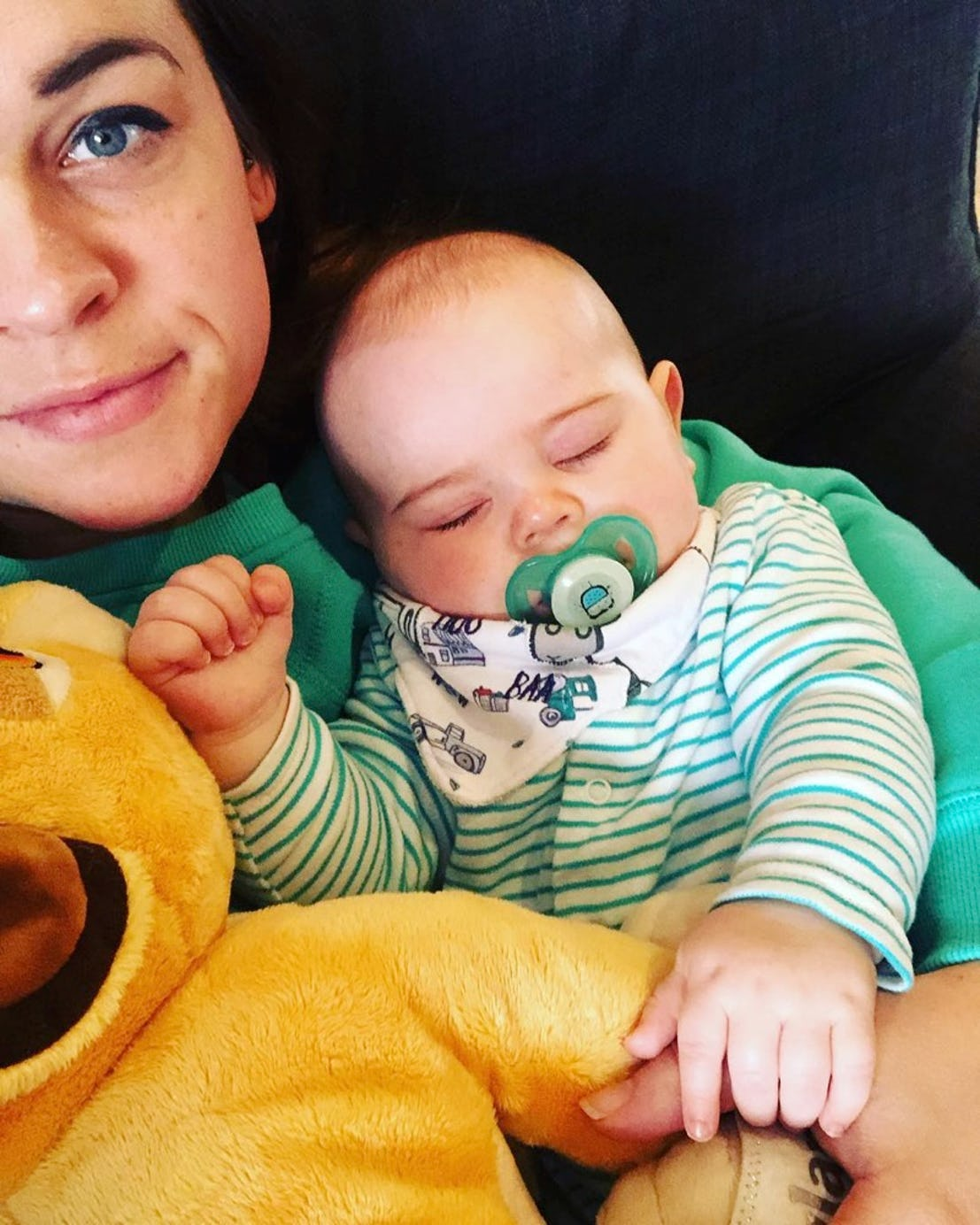
Every mom knows that sometimes infants have problems with gas and it makes them feel very uncomfortable, which can lead to bouts of tears and wailing with frustration because they have no other way to vocalize their discomfort.
S. Mommy writes that most pediatricians recommend that moms move a gassy baby’s legs in a cycling motion, almost as if they were riding a bicycle. However, a frustrated mother might resort to using items like gas drops or gripe water to ease a gassy baby without telling their child’s doctor. The fact of the matter is that items like the aforementioned drops and water won’t bother an infant, but there’s not a good chance that they will be successful.
7. YOU’RE NOT TRYING TO FRET ABOUT HAVING A COLICKY INFANT

It’s perfectly natural for moms to feel frazzled and stressed out when they are dealing with a colicky infant, especially if this is their first child and they have close relatives whose babies appeared to be perfect and didn’t struggle with screeching bouts that seem to last for hours on end.
Parents writes that some mothers might not admit that they’re feeling inundated by stress while battling colic in their infant to their child’s pediatrician because they feel guilty that they can’t easily soothe their little one. Colic is definitely difficult to deal with, but it’s a good idea to ‘fess up to the pediatrician because they’ll be able to give you some advice.
6. BEING ABLE TO RESIST THE TEMPTATION TO CONSTANTLY CHANGE FORMULAS TO SOOTHE COLICKY BABY

Some mothers feel guilty that their baby is dealing with colic because there is so much pressure on moms to be perfect and to have an instant magic touch to soothe their infant and become devoted to trying to find a magic cure, even if they don’t admit it to themselves or their child’s doctor.
According to S. Mommy, trying to go from one type of formula to another in order to quiet a colicky infant or purchasing a special kind of formula that claims to be good for gassy babies isn’t going to work because the claims are just really good marketing and there’s no medical reason to look for a cure-all for colic.
5. YOU WOULDN’T DARE PURCHASE A MAGIC SLEEP SUIT TO LULL YOUR INFANT TO SLEEP
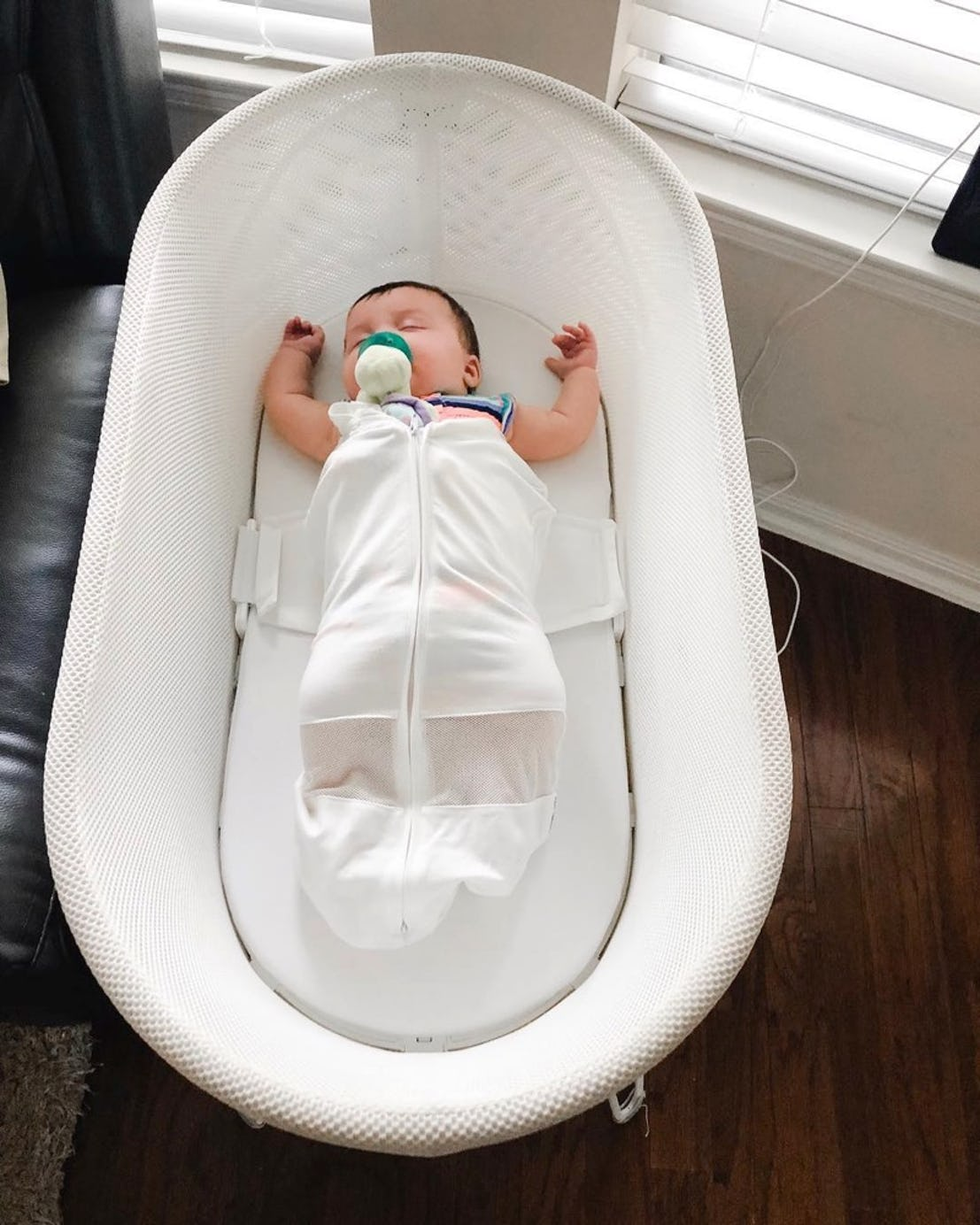
S.Mommy points out that infants like to sleep a lot for the first day or two and after that, it’s all a matter of the baby’s personal preference in terms of whether or not they need plenty of shut-eye or if they prefer to be more awake to observe this brand new world around them. Either way, most pediatricians advise new parents to hold and rock their little ones to sleep.
Of course, some moms secretly try sleep suits like the Baby Merlin’s Magic Sleep Suit in order to soothe their little one to sleep and keep them sleeping peacefully for more than an hour or so in the hopes that the parents can get some shut-eye too.
4. YOU DIDN’T FALL FOR THE CLEVER MARKETING OF THE CUTE INFANT PILLOWS SEEN ONLINE
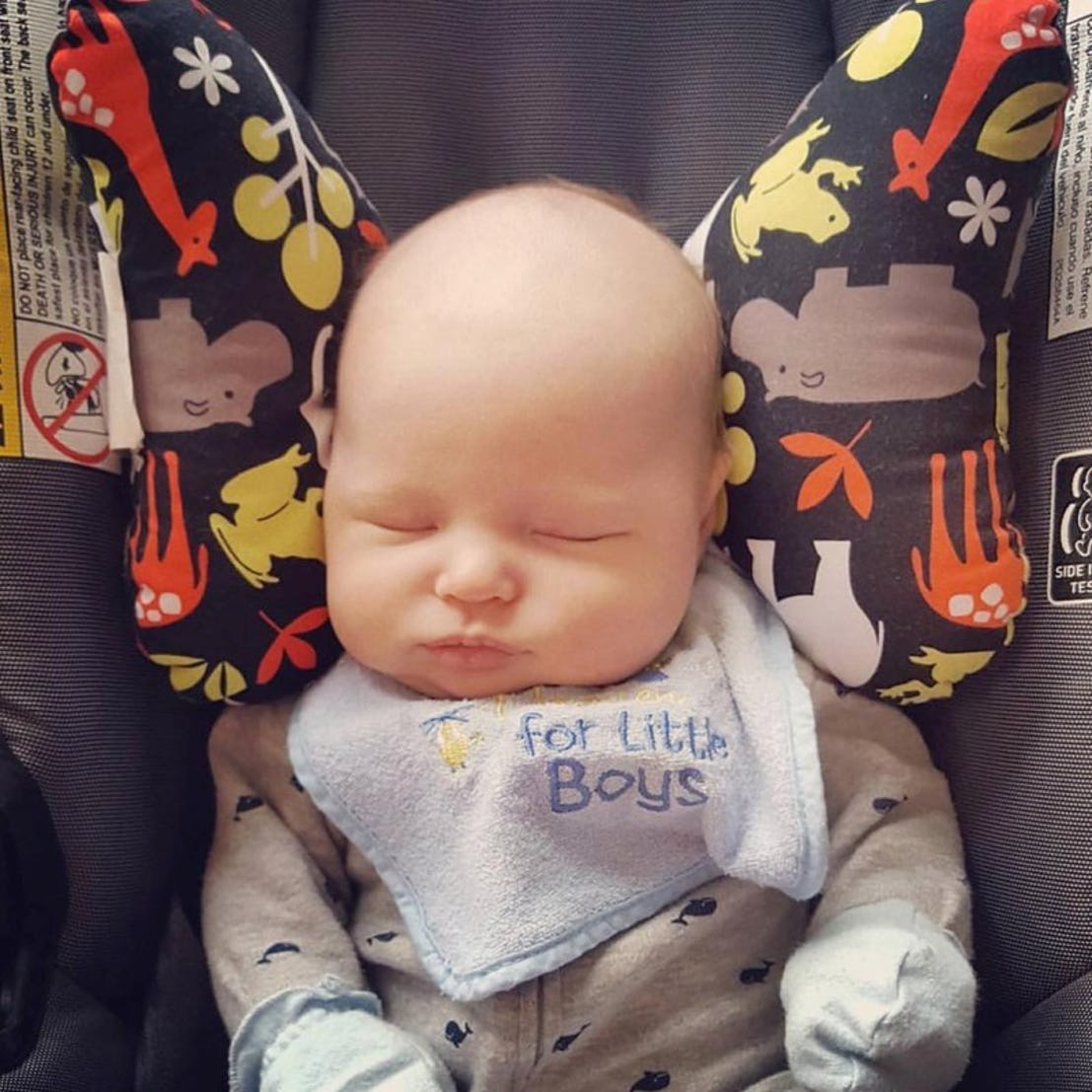
Pediatricians tell new moms and dads in no uncertain terms that infants don’t need anything other than a firm, flat surface to sleep on their backs and to be tempted to decorate the bassinet or the crib with cutesy items like stuffed animals or colorful pillows especially designed for infants.
Of course, S. Mommy notes that thanks to the rise of social media websites that allow parents to share picturesque and artsy photos of their infants sleeping peacefully amongst pillows and other doo-dads, some moms secretly purchase these things for their own nursery despite the fact that they know their child’s pediatrician would not be thrilled if they ever found out.
3. THERE IS NO INTEREST IN TRYING OUT CO-SLEEPING

Another popular fad in parenting that has made the rounds online in recent years is co-sleeping. With co-sleeping, parents share their bed with their infant and there are some mothers out there that are tempted to try out such a method, despite the staunch disapproval from medical professionals.
According to S. Mommy, the reason why pediatricians are so firmly against the idea of co-sleeping is due to the fact that even though there have been personal anecdotes of success, it is actually still a pretty risky method of putting your baby to sleep. Trying to get a little one to sleep is tricky, but eventually, this stage passes so it’s better to go the traditional route than take any risks to your little one’s health.
2. SPACING OUT NEW FOODS FOR BABY TO TRY

It can be very exciting for mothers when it comes time to introduce their baby to solid foods and they are so eager to introduce their baby to the wonderful world of solids that they disregard the pediatrician’s advice to space items out. Not that they’d ever admitted it at a check-up though, of course.
Parents notes that over-eager mothers are usually so enthused about this new stage in their baby’s life that they deliberately ignore the traditional rule that says new items need to be introduced every three to five days so that parents can rule out any potential allergy issues and allow the infant to get used to their new palate.
1. YOU WON’T URGE BABY TO EAT SOLIDS ASAP

According to CBS News, pediatricians stress to the parents of their patients that babies should be started on solids at the age of six months and not a minute sooner, lest they develop issues with insulin or not get enough of the nutrients they need to grow big and strong.
However, a study that was published in the Journal of the Academy of Nutrition and Dietetics reveals that many moms disregard their pediatrician’s advice and actually introduce solid foods to their infant a heck of a lot earlier than they should without even double-checking with their doctor if that is a good idea.


